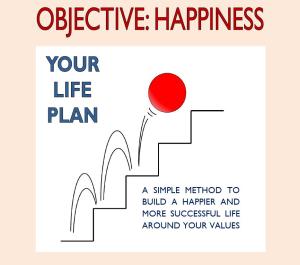Some years ago, I got the project to set up a fish processing operation in Klemtu on the central coast of British Columbia. Some agreement had been made a couple of years earlier, as the whole project started with the set up of fish farms.
For the processing, we needed to not only equip the plant, but also train the staff of this small coastal community isolated on an island with no road connection to the mainland. Therefore, the logistics were quite adverse: an isolated island with about no choice of carriers except the one that had been appointed on a sea that is often dangerous to the point that barges do not even venture on it. The risk was that the fresh fish could be stuck and not be delivered on time. Of course, that would have been unacceptable for our customers, who were located thousands of km away.
When it came to the facilities, the local community was providing for the plant, meaning a very basic building with no specific equipment for salmon processing. In the plant’s yard we had to browse through a pile of old tables and pipes to figure out something. Since volumes were starting rather low, it would not have been sensible to buy automated processing equipment, because the cost per pound of fish would have been horrendous. Further, the isolation of the place would have made any call for a technician about useless, as it would have taken him a couple of days to be on the premises. All the work was to be manual.
The equipment was probably the easiest part, though. We needed to train the staff to modern food production and educate them about to all aspects of food safety and quality, as they had never been exposed to this. Everyone who has dealt with First Nations knows that they are dealing with a number of social issues and poor physical health and condition, unfortunately the result of past colonization and the destruction of their traditional society. As such, this exercise was a great way of merging two worlds and recreating a feeling of community between this village and the international food business including large retailers and food service companies in the US and Canada.
We developed the training program covering all theoretical aspects as well as the practical realities of fish processing. A few chosen crew members were sent to an experienced fish plant to get exposure to modern processing. We set up an exam to have an incentive for the potential employees to study our material. As it appeared the day of the exam, half of the students did not show up and someone explained to me that some felt uncomfortable with writing. Of course, this was an awkward situation and there was a chance of losing some of the workforce, which is not good when that workforce is already limited, and replacement not easy to find. I turned this around by giving only one collective grade. After all, I had repeated so many times that this would be teamwork, what better example could I find to illustrate that than giving the team the grade, instead of individual marks?
Considering how important it is to gut and cut the fish properly, I was more interested in the quality of the work than the productivity at first. Once they would master the technique, we could think of increasing the pace of the processing line. So, we started with the equivalent of half a truck the first day, and the second half for the following day. In a normal plant, a full truck was processed in five hours in those days. I was expecting that our first half load would be done in eight hours at most. The reality came out quite differently. After two hours, the staff got physically tired and I could notice that moment when all the shoulders started to drop. After eight hours, many of the workers went back home because they were tired. We finished the first production day in thirteen hours! The second day was even worse with some people not showing up at all, and it took 23 hours! The situation looked lost. However, my sense of persistence made me refuse to give up so quickly. I re-planned the next round of harvests to be only a third of a truck per processing day. This was the magical number, and from there, our staff was able to work within normal hours, and get more productive, while producing the proper quality. Within two weeks after this, they were able to process a full truck in 9 hours! What a turn-around! As production volumes were increasing, we were able to justify for the purchase of machines to help speeding up the operation and by then we were able to process fish as quickly as any other regular plant.
As time went by, some of the locals showed capacities to take charge of more and more things, and even the original agreement was clearly that management activities had to be carried out by non-locals, we created several positions that they could fill successfully.
Yet, beyond the business case, the most valuable experience for me had been to see activity coming back in a community plagued by 80% unemployment before this project started. Getting work did not only give them money, but it helped them become healthier, with many of the employees recovering from diabetes. The most important of all was a boosted self-esteem, as they found a new purpose in their lives.
They felt successful, happy and fulfilled again!
Copyright 2009 The Happy Future Group Consulting Ltd.



 Posted by Christophe Pelletier
Posted by Christophe Pelletier  They are happy to go to work; they do not suffer from stress or fear about it.
They are happy to go to work; they do not suffer from stress or fear about it. When hiring people, I have heard many times their claiming to be perfectionists, either as one of their top three qualities or one of their top three “weaknesses”. Actually, it has always sounded to me like everyone wants things to be “perfect” all the time.
When hiring people, I have heard many times their claiming to be perfectionists, either as one of their top three qualities or one of their top three “weaknesses”. Actually, it has always sounded to me like everyone wants things to be “perfect” all the time. Yet, a satisfied and happy boss is very important for an organization, because the boss’s personality and mood is quite contagious. You can be sure that a bitter boss means lots of bitterness and tension on the work floor. Therefore, a happy boss is an absolute necessity in order for a company to achieve superior performance.
Yet, a satisfied and happy boss is very important for an organization, because the boss’s personality and mood is quite contagious. You can be sure that a bitter boss means lots of bitterness and tension on the work floor. Therefore, a happy boss is an absolute necessity in order for a company to achieve superior performance. The best way to achieve this is to make a short plan of the activities you want to be done before the end of the day. Remember that failing to plan is planning to fail.
The best way to achieve this is to make a short plan of the activities you want to be done before the end of the day. Remember that failing to plan is planning to fail. I have spent a long part of my career in industries dealing with perishable products. Per definition, such products cannot be stored for very long and this makes the business dynamics quite intense, and often stressful, as “everything must go” and for a profit, mind you. Therefore, my assignment to them, next to (or I should say as part of) doing the job was to make me hear some laughter. It did not matter what the reason would be, as long as there would be fun. In that line of work, we were lucky to be able to find many reasons to laugh because we were dealing with colorful characters and we could easily find the funny absurdities of the business. The head office would involuntarily also provide for much material to us as well. If my staff would not laugh frequently enough to my liking, I would pop in and bring some craziness of my own to help them out.
I have spent a long part of my career in industries dealing with perishable products. Per definition, such products cannot be stored for very long and this makes the business dynamics quite intense, and often stressful, as “everything must go” and for a profit, mind you. Therefore, my assignment to them, next to (or I should say as part of) doing the job was to make me hear some laughter. It did not matter what the reason would be, as long as there would be fun. In that line of work, we were lucky to be able to find many reasons to laugh because we were dealing with colorful characters and we could easily find the funny absurdities of the business. The head office would involuntarily also provide for much material to us as well. If my staff would not laugh frequently enough to my liking, I would pop in and bring some craziness of my own to help them out. It is rather easy to sort people in either one of these two groups. They have very specific and very different behaviors.
It is rather easy to sort people in either one of these two groups. They have very specific and very different behaviors. In order to be happy, you need to know yourself. This sounds obvious, and yet because of lack of self-awareness, many people look for answers in all the wrong places, and can spend their whole lives being unhappy.
In order to be happy, you need to know yourself. This sounds obvious, and yet because of lack of self-awareness, many people look for answers in all the wrong places, and can spend their whole lives being unhappy.![Reaching your goals one step at a time j0438395[1]](https://happyfuturegroup.files.wordpress.com/2009/05/j04383951.jpg?w=450) The first step to increase your level of happiness is to identify the ingredients of that cocktail. The following steps are about setting targets on how to meet those values and needs more as time goes by. Trying to satisfy needs you do not really have, will not work on the long-term. Just look at a child at Christmas: the new toys are exciting the first day, a bit less the next day and soon they will be boring. The toys met a short-term desire, in most cases inspired by outsiders, especially marketers, but did not answer a true deep wish. And I am sure that you can find many similar examples of meeting the wrong needs. It might bring short-term satisfaction, because a nice surprise is always nice, but it will not last because it is not the right answer.
The first step to increase your level of happiness is to identify the ingredients of that cocktail. The following steps are about setting targets on how to meet those values and needs more as time goes by. Trying to satisfy needs you do not really have, will not work on the long-term. Just look at a child at Christmas: the new toys are exciting the first day, a bit less the next day and soon they will be boring. The toys met a short-term desire, in most cases inspired by outsiders, especially marketers, but did not answer a true deep wish. And I am sure that you can find many similar examples of meeting the wrong needs. It might bring short-term satisfaction, because a nice surprise is always nice, but it will not last because it is not the right answer.
 Secondly, just observe the people. In the great places to work for, people exude happiness. They will smile at you in the corridors and they will say hello. Beware of the workplaces where you will not even get eye contact, forget about a smile.
Secondly, just observe the people. In the great places to work for, people exude happiness. They will smile at you in the corridors and they will say hello. Beware of the workplaces where you will not even get eye contact, forget about a smile.
 This is just an example of how important presence and availability are in managing people. If you have done your hiring properly and brought in the right people in the right jobs, they will understand very quickly how to do what is expected from them and deliver the performance that meets, and in most cases exceeds the targets. The role of the manager in such a situation is a little comparable with a shepherd. You keep a good oversight of your troops, but if any one wanders in the wrong direction, you just bring him/her back on the right track.
This is just an example of how important presence and availability are in managing people. If you have done your hiring properly and brought in the right people in the right jobs, they will understand very quickly how to do what is expected from them and deliver the performance that meets, and in most cases exceeds the targets. The role of the manager in such a situation is a little comparable with a shepherd. You keep a good oversight of your troops, but if any one wanders in the wrong direction, you just bring him/her back on the right track.![The Key of Success j0395782[1]](https://happyfuturegroup.files.wordpress.com/2009/05/j03957821.gif?w=450)
![Watch Them Soar! j0414117[1]](https://happyfuturegroup.files.wordpress.com/2009/05/j04141171.jpg?w=197&h=300) To illustrate this, I cannot think of a better example than one of my employees when I was in the aquaculture business.
To illustrate this, I cannot think of a better example than one of my employees when I was in the aquaculture business.








